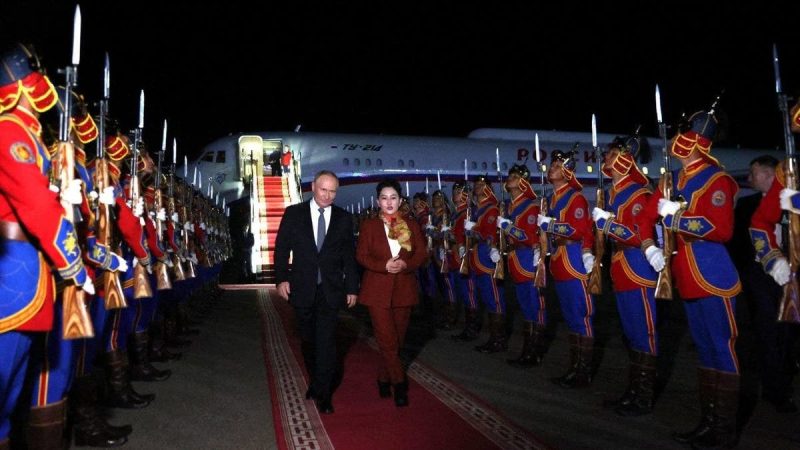In a recent political development that has garnered international attention, Mongolia has attracted controversy by choosing not to arrest Russian President Vladimir Putin during his state visit to the country. This decision comes in direct contradiction to the demands from the International Criminal Court (ICC) to detain Putin, who is currently under investigation for alleged war crimes and human rights violations in Ukraine.
The ICC’s call for the arrest of Putin stems from the ongoing conflict in Ukraine, where Russian military intervention has been heavily criticized by the international community. The court has been investigating allegations of human rights abuses, including the targeting of civilians and the destruction of infrastructure in Ukraine, with Putin being named as a key figure in these allegations.
Despite the pressure from the ICC, Mongolia has opted to prioritize its diplomatic relations with Russia over complying with the demands to arrest Putin. The decision not to act against the Russian president during his visit underscores the complex web of geopolitical considerations that countries often navigate in international relations.
Mongolia’s stance on the issue has sparked debate and criticism from various quarters, with human rights organizations and pro-democracy advocates condemning the country’s perceived lack of commitment to upholding international justice. Critics argue that by allowing Putin to visit without repercussions, Mongolia is undermining the principles of accountability and the rule of law that the ICC seeks to uphold.
On the other hand, supporters of Mongolia’s decision point to the country’s geopolitical vulnerability and economic reliance on Russia as reasons for not antagonizing the Russian government. They argue that complicated geopolitical realities often require countries to make difficult choices that balance moral obligations with pragmatic considerations.
The case of Mongolia’s refusal to arrest Putin during his state visit serves as a stark illustration of the complexities and challenges inherent in the pursuit of international justice and accountability. It highlights the tensions between the demands of the international legal system and the pragmatic considerations that influence state behavior in the arena of global politics.
As the situation continues to unfold, it raises important questions about the role of international institutions like the ICC in holding powerful individuals and states accountable for their actions. It also underscores the need for a nuanced understanding of the intricacies of international relations and the competing interests that shape the decisions of states in the international arena.




























